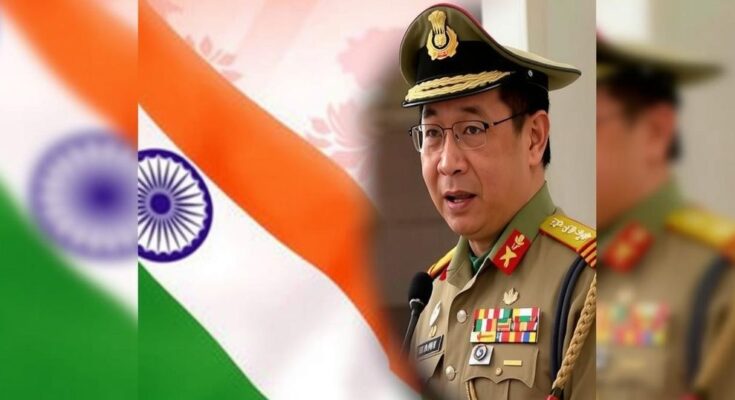Army Chief General Upendra Dwivedi addressed the sensitive yet stable situation along the India-China border, denying the existence of buffer zones along the Line of Actual Control (LAC). He noted the completion of disengagement processes and mutual agreements on grazing areas, while highlighting the need for ongoing dialogue to redefine trust between the nations.
In a recent address, Army Chief General Upendra Dwivedi commented on the current state of affairs along the India-China border, emphasizing its stability yet sensitivity. He reiterated that there are no buffer zones along the Line of Actual Control (LAC), despite ongoing discussions aimed at maintaining peace. General Dwivedi highlighted the completion of disengagement at Depsang and Demchok, stating that both Indian and Chinese forces have withdrawn their troops and dismantled temporary structures established since the military tensions escalated in May 2020. He remarked, “It is stable but sensitive. There have been a series of meetings. Even the Prime Minister has met the Chinese head…” Moreover, he detailed the mutual agreements concerning grazing grounds and indicated that trust between the two nations needs redefinition moving forward.
The Army Chief expressed the necessity for continued diplomatic dialogue, looking forward to upcoming meetings between special representatives as both sides navigate this complex relationship.
The topic of the India-China border situation has evolved significantly since military encounters began in May 2020, particularly in the region of eastern Ladakh. The tension has resulted in a significant military buildup and numerous face-offs, compelling both nations to engage in high-level discussions. The completion of disengagement at key points like Depsang and Demchok signals a critical phase aimed at reducing hostilities and restoring stability in the region. General Upendra Dwivedi’s statements reflect the military’s perspective on the evolving dynamics along the contested border.
In summary, General Upendra Dwivedi’s emphasis on a stable yet sensitive situation along the India-China border reflects the complexities of maintaining peace between the two countries. The absence of buffer zones suggests a careful approach to managing potential flashpoints, while ongoing dialogues aim to rebuild trust. The recent disengagement efforts at Depsang and Demchok mark an essential step in addressing longstanding tensions, with further negotiations anticipated to foster understanding and cooperation going forward.
Original Source: www.hindustantimes.com




